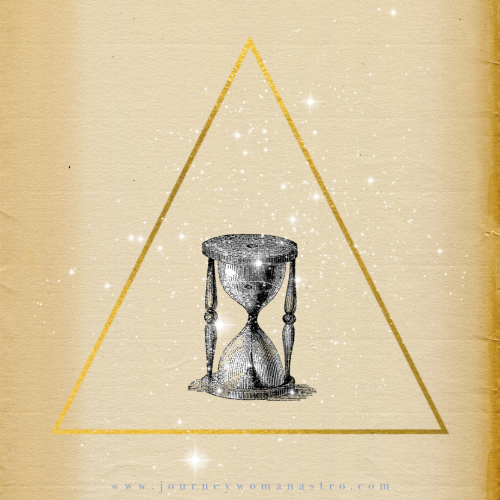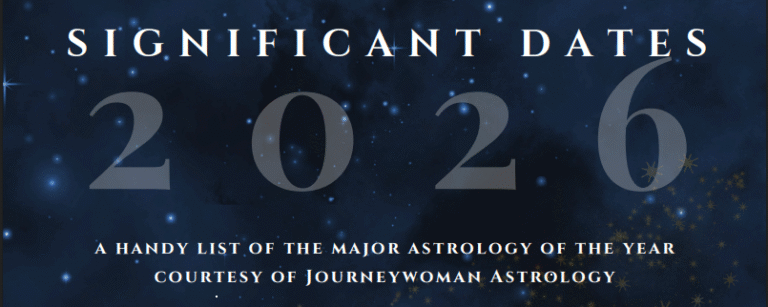
Table of Contents
I don't know my birth time. How can I find it?
… and do you really need your birth time to create your birth chart, or for a session with an astrologer?
I hear these sorts of questions often. In this post, I’ll share what I suggest to my clients for tracking down elusive birth times and answer other common questions regarding birth time in astrology.
First, let’s start with the basics: if you have it available, check your birth certificate. Birth time will often be listed there—except, unfortunately, when it’s not (lol). We’ll get to that below.
Don’t have a copy of your birth certificate? Then it’s a matter of ordering a copy of your birth certificate from the body in your state or locality of birth that maintains birth records. In the United States, the CDC has a very helpful map here: simply click on the state where you were born to find instructions for getting a birth certificate in that state.
Sometimes it’s really that easy: wait a few weeks or so, and you’ll have your birth time along with a fresh copy of your birth certificate in hand.
In some locations, however, that may not be enough—instead, you could end up with a copy of your birth certificate sans the time. Personally, this happened to me when I ordered my birth certificate from the state of Pennsylvania. I had to order a second copy, this time explicitly requesting the birth time be included. Some states may charge a bit more for this version, as Pennsylvania did (and perhaps still does).
To avoid this delay and expense, be sure to check whether there’s an option to specify that you’d like a copy of your birth certificate with the birth time.
Can I simply ask my parents my birth time?
… or, if not a parent, someone else you’re certain was present or informed about your time of birth? Of course you can, and sometimes this is your best bet.
A caveat about asking parents, caregivers, and relatives, though. They may not accurately remember your birth time (perhaps mothers especially, given the intensity of the birth experience!). Some parents, particularly the astrology-aware, have a reliable memory for these things. But sometimes—and I share this with no judgment—they do not.
Astrologers are used to working with this sort of thing. But it’s something to be aware of if you’re trying to get an accurate sense of your birth time.
If your parents aren’t sure, you may be able to find other ways to establish a birth time. For example, some families maintain bibles, mementos, or other family records that note birth times. Or perhaps they sent out announcements near the time of birth, allowing you to guesstimate with relative certainty. This gets easier the younger someone is—you might be able to check your text history or search your email. (Checking email and texts is also a great way to establish a first-meeting chart, by the way, which can offer a fascinating window into a relationship.)
Are recorded birth times always correct?
Unfortunately, not always.
Keep an eye out for rounded times: 7:30 am, for example, or 3 pm. When a given time is recorded to the minute and it’s not rounded (such as, say, 2:44 am), astrologers breath a sigh of relief. It means it’s much more likely someone was actually paying attention to the clock.
A rounded figure, on the other hand, may mean whoever recorded the birth time guesstimated, which is not uncommon, whether in a hospital birth or otherwise. This isn’t the end of the world—you’re still likely to have something very close to your actual birth time. However, a rounded-off time can still introduce uncertainty in certain cases, such as when the Ascendant or Moon is at the 29th degree and just about to change signs.
Do I need a birth time to create my natal chart?
Nope, you don’t. If you don’t have your birth time available, you can use what’s called a noon chart: simply set the time of the chart for 12 pm. See the next question below to learn what this allows you to know, and what it leaves out.
Does birth time matter in astrology?
To a certain degree, yes. There are many astrological factors we know with the day and year of birth and birthplace alone. (Think of ancient astrologers, who it’s safe to assume were unlikely to be able to record birth times to the exact minute, yet still made startlingly accurate predictions.)
What don’t we know if we don’t have an exact birth time? The rising sign (also called the Ascendant), the exact placement of the Moon as well as any aspects it makes, and the angles and house degrees (cusps) of the chart.
Here’s why this matters. Let’s take the Moon as an example: the Moon travels about 12 degrees on any given day. When you know the day of birth but not the time, what happens if the Moon has changed signs on that day? It means you won’t know your Moon sign with certainty.
All is not lost, however. If you don’t have an exact birth time, a Moon sign is often fairly easy to deduce. Neighboring signs tend to have little in common, so it will generally be obvious which sign is the correct one. If the Moon didn’t change signs on your birthday, you’re in luck: you know its sign with certainty, even if you don’t know its exact degree.
I'm not sure what my rising (or Moon) sign is. What do you suggest?
If possible, I always suggest seeing if you can identify any kind of window of time on your birthday (see the question about asking your parents or caregivers). Sometimes, you’ll have a general window of time in which you’re fairly certain you were born—around breakfast or dinner, for example.
Narrowing the possibilities down helps a lot. If we look at possible rising signs within a several-hour window, since rising signs shift every couple of hours or so throughout the day, we’ll generally end up with a choice between two or three signs. (The Moon also moves to a new sign about every 2.5 days, so if it happened to move on your birthday, the same sort of experimentation will apply—see the question immediately above.)
The next thing I suggest is that you learn about those signs and think about which you most identify with. Often, a rising sign is relatively obvious. If you’re not sure, a professional astrologer can help you identify your rising sign in this situation. (I’m happy to discuss these questions in my consultations—choose a 90-minute session so we have time to explore the options.) Since the signs adjoining one another in the zodiac are generally quite different (think Pisces vs. Aries, for example), it’s often easy to discern the appropriate sign. There are occasionally complicating factors, but frequently this works quite well.
If you’d like to do some research yourself, I suggest checking out Linda Goodman’s Sun Signs (nonaffiliate link) and Love Signs (affiliate link; thanks for helping to support this site). Her fun, witty, insightful takes on the Sun signs also apply to rising and Moon signs. Many times you’ll instantly know what you most identify with when reading her descriptions. Her writing, while I don’t believe it’s yet out of copyright, is somehow all over the Internet, so you can also simply Google “Linda Goodman” plus the Sun sign you’re interested in. I recommend getting her books if you can, though. While they can be a little (sometimes very) retro, they’re always charming and insightful, along with being a fantastic introduction to astrology and great reference books to have on your shelf.
What if I've tried everything I can think of, but still can't figure out my birth time?
In this case, I suggest working with an astrologer skilled in what’s called rectification—which simply means working backward from major events in your life to establish a birth time. Some astrologers are very good at it and enjoy the puzzle it presents. Exact chart rectification is not a service I offer at this time, though we’re often able to narrow down to a likely rising sign with a bit of back-and-forth discussion in a natal chart session. If you’re interested in exact chart rectification, feel free to write to me and I’ll be happy to offer suggestions for practitioners I recommend.
I’ve also encountered folks who only know their day of birth within a certain several-day window. This is tough, but still not entirely without hope. In this case, I’d also suggest working with a skilled astrologer who has substantial experience in chart rectification.
Do you have other questions about birth time? If so, let me know in the comments! I’ll answer there or add them to this post.
Curious about your chart?
Explore your astrology with a professional
I offer several consultations:
- A getting-to-know-your-chart session is ideal if you’re new to astrology and curious about what your chart reveals.
- In our overview of the moment session, discover the nature of the present time using transits and other powerful predictive tools—and be prepared for what’s ahead.
- An in-depth session may explore a relationship or advanced predictive techniques, such as progressions, solar arcs, or lunations. This session can also be aligned to any other questions you have, allowing time to delve into the wonderful insights astrology offers.
